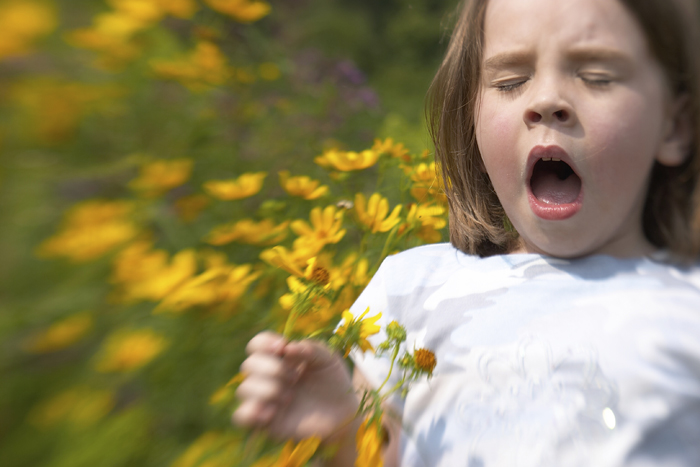As discussed it is very common for people that have an atopic allergy such as hayfever to also suffer from asthma. Asthma is a condition which causes the airways to become inflamed and symptoms include wheezing, breathlessness, tightness of the chest and coughing. Asthma can develop at any age but is commonly diagnosed in childhood approximately 50 per cent of asthmatic children will be diagnosed before they are 10 years old and children often have a parent with either asthma, eczema or hayfever.

The symptoms commonly known as an asthma attack are triggered by something irritating the airways and these triggers differ from person to person, and some people may have several triggers. The most common are:
• pollen
• house dust mites
• animals
• tobacco smoke
• physical exercise
• change in air temperature
• respiratory infections e.g. colds or viruses
• moulds/fungi
• pollutants
• medicines e.g. aspirin or ibuprofen
Treatment is often two fold, managing symptoms through medication e.g. inhalers, and prevention through lifestyle changes and allergen avoidance.
Atopic Eczema
Atopic eczema is the most common form of eczema and usually starts in childhood with about 80% of cases being diagnosed before the child is 5 years old. It runs in families and is linked to other allergic conditions such as asthma and hayfever.
Symptoms of atopic eczema
Atopic eczema is a chronic relapsing skin condition where sufferers periodically experience what’s called a flare-up, which is when symptoms become worse and stronger treatment may be required.
Atopic eczema principally affects the skin creases such as the back of the knees, elbows and neck and usually starts as a rash made of small red bumps or blisters. The skin feels dry and rough and it can become:
• itchy
• red
• broken
• thickened
• cracked
During a flare-up the above symptoms will worsen and the affected area may also feel hot and become wet due to the skin weeping. The skin can become infected, as bacteria can get into underlying tissue through the cracked and weeping skin. Repeated scratching encourages infection and also thickening of the skin called lichenification. Signs of fever during an eczema flare-up should be referred to the pharmacist as antibiotic medication may be required.
The severity of symptoms varies from person to person. People with mild symptoms may only have a small patch of irritated skin, whereas severe cases may have large areas of dry skin that constantly itch and may weep.
